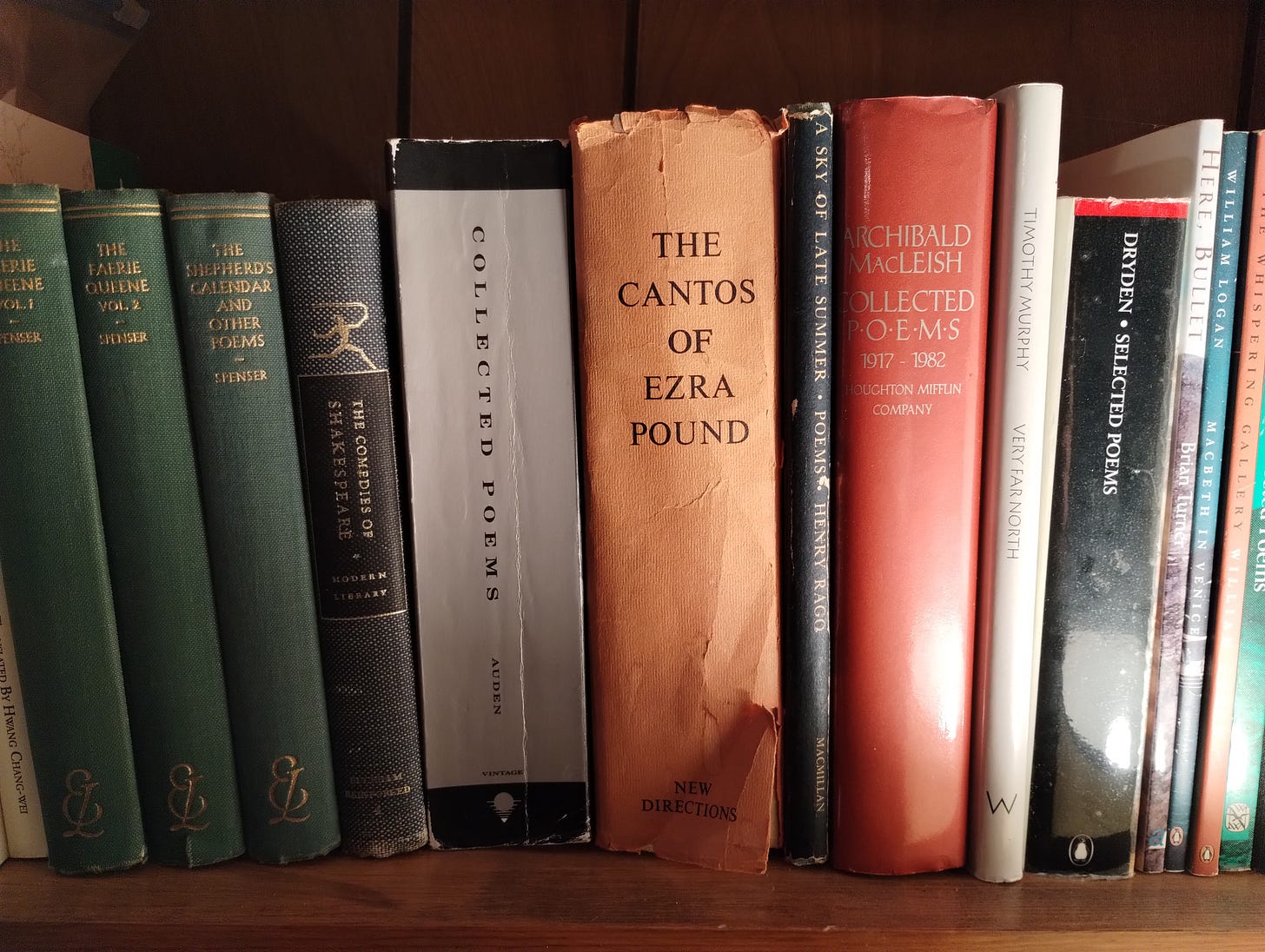Often I find new authors through old authors—living out Robert Frost’s way leading on to way. Though I do also like to re-read and sometimes in fact come back.
But sometimes I discover a new author on the recommendation of a friend. When this happens, I feel a degree of gratitude similar to the one I feel when receiving a really nice bottle of tequila. It’s something like that anyway.
It’s because of how grateful I feel when someone gives me an introduction to an author or text I don’t know that I thought I’d share the books I read last month with a few notes on each of them. The idea of the notes is to give anyone who might be interested enough of a glimpse into the book, at least what caught my eye, to decide if its worthy of your limited time.
Rob Henderson: Troubled
This is a memoir that skewers some of the intellectual and social idols of our age, especially those held and propagated by the wealthiest, most educated, and most powerful (if you are an Ivan Illich fan you’ll recognize a string of synonyms there).
calls these idols “luxury beliefs,” and it is the indirect anatomy of these beliefs that makes this book so important.Henderson’s tone is downright contemplative as he describes the purgatory of his youth as an orphan in foster homes. He matter-of-factly describes families broken by drugs, divorce, and abuse and the legion of children whose lives are marked for failure before they even begin. He also describes how out of touch his ivy-league peers are / were with what life is actually like for those who live in the world they and their rich parents have constructed. This is a book that was not supposed to be written because people with backgrounds like Rob Henderson’s aren’t supposed to be able to write and tell the story of American life on the ground. I imagine there is a damage control effort underway at Yale.
Troubled is both a heart-wrenching memoir and a sharp reprimand to our virtue-signaling elites and the social pathologies for which they so often advocate.
Simon Tugwell: Ways of Imperfection
Tugwell is a Dominican and has several great books: one on the beatitudes; on on prayer; and many others I have not yet read. Ways of Imperfection is a study of several different approaches to Christian spirituality that have enjoyed popularity at different times and in different places and in some cases are represented by a particular saint and his writings.
The whole book is useful for the historical context it provides on the variety of spiritual expressions. But his chapter on Julian of Norwich was particularly interesting to me. Because my years in the military involved me with people in tough circumstances doing painful things to each other, the classic “problem of pain” in Christianity has always been acute to me. Hyper-rationalistic approaches which have human suffering all accounted for in the columns of the ledger never quite rang true. It’s all very easy and clean in the classroom or the boardroom, but actual murder, starvation, rape, etc, hits a little different.
In Ways of Imperfection, Tugwell describes the way Julian of Norwich addressed the problem (much more satisfying an approach for me personally). Sin is pain. I won’t attempt to unpack it here, but do highly recommend it.
M.M. Kay: The Far Pavilions
This is a novel about India by an English woman who spent many years living there. It clocks in at a hefty 900 some odd pages and did more than merely hold my interest. I’m not a huge novel guy and it had been some time since I had read one. On the recommendation of my mother-in-law and sister-in-law I read this one and do not regret it. Perhaps it helps that I recently spent a couple weeks in India, but the book is charming and exciting.
Like the classifieds in any respectable newspaper (but a little more clear), it is full of murders, love affairs, local flavor, and war. Some of its comments on British imperial policy in India made me think of recent American escapades in Afghanistan. I’m glad to say, however, that the book is not really much for moralizing. It’s full of the rich and tragic patterns of human life, in this case made richer by the meeting of many cultures occasionally working at cross purposes…in a beautiful place…with horses and guns and stuff.
Walt Whitman: Leaves of Grass
Yes, it’s just a poem, but it’s a long, book-length poem from one of the American classics, and it packs a serious punch unless you consist of inert matter. Whitman is a close talker—that friend who does everything over the top including invading your personal space. You don’t need to be comfortable with it to recognize that it’s better than anything you’ll ever do. Many people are made uncomfortable by Whitman’s exuberance, by how much larger than life he is—actually that’s not right. He’s not larger than life. He simply packs so much more of life into his words than we’re used to. Whitman is a heavy dose of living. Love that. His haters inadvertently admit the particular quality of his greatness every time they protest. Too much? Yes, it is too much.
This is a poem you can read in two hours cover to cover. Its simplest self is simple to understand. It says what it means (like all great poetry). But it also rewards additional time if you have it to give.
I tramp a perpetual journey, My signs are a rain-proof coat and good shoes and a staff cut from the woods; No friend of mine takes his ease in my chair, I have no chair, nor church nor philosophy; I lead no man to a dinner-table or library or exchange, But each man and each woman of you I lead upon a knoll, My left hand hooks you round the waist, My right hand points to landscapes of continents, and a plain public road. Not I, not any one else can travel that road for you, You must travel it for yourself.
Pablo Neruda: The Poetry of Pablo Neruda
Poor Pablo. His translators have not always treated him well.
Unless you have the Spanish you really have to read the Farrar, Straus and Giroux copy. We have another copy too and it’s terrible. For years I had difficulty with Neruda until recently I picked up the FSG book which contains several different translators, often presenting them side by side with the same poem. For Neruda, Spanish will probably be best. It’s in translation and you don’t like it? Try another translation.
Those of you who like this kind of thing will see what I was up to in March. Neruda and Whitman have a great deal in common. They’re both naughty; classical types aren’t supposed to like them; they’re not formal enough; and their politics….I always read poets for their politics. Just kidding.
Should I repeat what I wrote about Whitman being an overdose of life? Neruda writes beautifully about sadness, about loss, about work.
On sadness: “I am alone among rickety substances, / the rain falls upon me and it seems like me, / like me with its madness, alone in this dead world, / rejected as it falls, and without persistent shape.” (Donald Walsh translating)
On loss: “you undermine the horizon with your absence. / Eternally in flight like the wave.” (that’s Merwin there)
On work: “the inexhaustible store of lost deeds, shoddy, / occurrences, from nine to five, to six, / and not one death but many came to each, / each day a little death: dust, maggot, lamp, / drenched in the mire of suburbs, a little death with fat wings / entered into each man like a short blade / and siege was laid to him by bread or knife.” (translated by Nathaniel Tarn)
He writes about eros too, but where would the fun be if I just spelled all that out for you?
There you have it. In between sets of Korean Dips and box jumps I find time to harass you poor souls with notes about books I’ve read. But never fear! If your appetite for the eclectic remains unsated, I plan to do a how-to on Norwegian wood stacks in the near future.
Why labor alone?





Far Pavilions was one of my FAVORITE books that I'd forgotten about. So good.